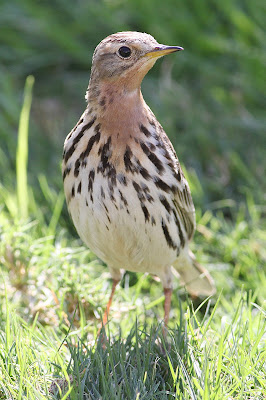It’s not just me. Studying the latest news on local web sites it is clear that most birders are struggling with the weather in being able to get outdoors for even a spot of birding, never mind ringing. Apologies for the lack of posts in recent days and for the next week or so as Storm Debi is the latest Atlantic arrival to batter our lives.
I raided the archives and found memories of warmer, drier days gone by in The Middle East and Egypt where politics and/or religion are often a cause of trouble.
After arriving in Egypt to tanks on street corners the holiday was uneventful but totally relaxing. Late on Friday November 8 2011 we arrived in Manchester safe and sound from Hurghada and The Red Sea, many miles from the shock waves still emanating from Cairo and other Egyptian cities.
Sue and I had healthy tans from a wonderful holiday, and after two weeks of unbroken 28 degrees, together with staving off Pharaoh’s Revenge, we felt pretty relaxed about Egypt. Most other Europeans went home with tails between their legs at the first sign of trouble, and left mainly German and UK nationals remaining. By our second week, the early mornings saw a halt to hostilities in the “Towels on Sunbeds War” and where available sunbeds on our deserted beach easily outnumbered potential occupants by five to one.
These unexpected plusses neatly allowed me to head off for a little local birding in the by now extremely quiet but lush, well-watered, green resort of Makadi Bay where Bougainvillea clad buildings greet at every turn. I quickly established a couple of miles local patch that comprised boating wharfs, the beach and numerous garden areas of the many four and five star hotels.
The locals tell you that Egypt is 95% sand, where the Red Sea resorts are built on strips of land bounded by sandy shores on one side and desert sand on the other, Hurghada being no exception to that rule. That rather limits the birding unless car hire is taken, but that wasn’t on the agenda in strife torn Egypt. I found plenty of birding and photographic opportunities with morning and afternoon forays and gentle strolls around the beautiful bay.
Here is a flavour of the birds I saw in Egypt, and in the next week or two I hope to post more pictures after first catching up with blogging friends everywhere, news from my local patch here in the UK and get in an overdue ringing session.
Common and numerous everywhere in Makadi Bay are Bluethroats, wintering birds from the several races of Europe.
Makadi Bay

I found lots of ground-hugging Red-throated Pipits skulking about the quiet grassy areas where Cattle Egrets also fed as Kestrels and an Egyptian soldier kept a look-out.






The beach and the shore held Western Reef Herons and an occasional Striated Heron, crepuscular in their habits.



Stay tuned folks. Storm Debi can't last forever can she?
Another Bird Blog is back soon.









































































